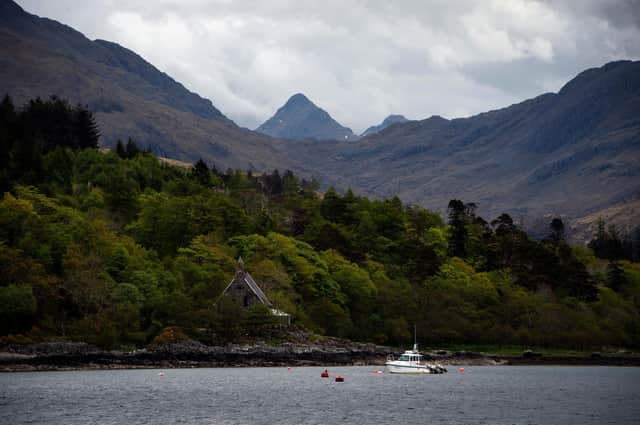Let's grab fresh opportunities - Comment


And, after somehow ending up with the worst of all worlds from that one, the Covid pandemic and its knock-on consequences swiftly piled in just to jazz things up a bit, adding to all the usual farming pressures ranging from the unpredictable weather to swings in global commodity prices.
So, having been preoccupied by these events, it’s come as a bit of a surprise to find that farmers and land managers have suddenly found themselves sitting on top of two important new assets.
Advertisement
Hide AdAdvertisement
Hide AdNow while the terms natural capital and carbon trading have been bandied about in both the general and the farming press in fairly liberal doses for a while, to the man in the street - or the field - the chances are they still don’t actually mean a lot.
Personally, while I might enjoy the local wildlife as I head out in the morning to check the stock, it seldom crosses my mind to look upon it as natural capital and while there’s a push to get on with sowing the winter crops, I’d be lying if I said carbon sequestration was a major driver in my daily activities.
Now I guess our attitude to these areas has been set by the fact that these are services which in the past have either been delivered for free as part of the wider husbandry of the land or, it has to be admitted, been a bit ignored or neglected.
However, while the farming world might be a bit behind the curve in realising the growing importance of these assets and the potential which they offer for future development, other sectors of commerce have not been as tardy.
And there’s been considerable investment by the wider business community aimed at harnessing these assets through carbon trading arrangements, land purchases and biodiversity deals which allow big companies and rich individuals to use their financial muscle to camouflage themselves in various hues of green.
But at the root of these schemes there generally needs to be access to land – and with large areas of Scotland consisting of hills, bogs and mountains (or as someone more prosaically put it miles and miles of bugger all) a good deal of the country’s landscape has found itself in the cross-hairs of such investments.
For land which was once considered of pretty low value – such as the widespread areas of peatland which Scotland is home to, along with any space which can have a tree planted upon it - is beginning to look like prime property from an alternative land use viewpoint.
Now there’s nothing new to big changes in the remote areas of the country – from the early Highland clearances where the clansfolk were replaced by sheep, to the creation of huge shooting and sporting estates during the Victorian period.
Advertisement
Hide AdAdvertisement
Hide AdOne thing did ring out as these changes took place though – and that was the fact that the local populations and traditional businesses in the areas exposed to such change seldom gained much as their livelihoods and homes came under threat from external and often absent owners.
Similarly, around the world, local populations have often lost out as new powers, both commercial and political, have moved in to exploit resources which had often meant little to the indiginous populations - who often gained nothing or lost everything from the ensuing profit grab.
And while there might be many ethical companies working in the market surrounding the trading of carbon credits and biodiversity agreements, recent warnings that farmers and landowners in Scotland should hold back from committing themselves highlights the fact that in such an undeveloped and relatively unregulated market they run a real risk of losing control of their assets for the equivalent of a handful of beads.
Now while they’d probably not use the terminology, avoiding this sort of carbon credit colonialism looks set to be the focus of the upcoming conference hosted by the Scottish Land Commission which aims to find a means to ensure the value of these assets are shared by the whole nation rather than being snapped up by speculators.
And with the fast growth of new carbon and natural capital markets raising some fundamental questions on how land is owned and used, it’d be worth tuning in.
A message from the Editor
Thank you for reading this article. We're more reliant on your support than ever as the shift in consumer habits brought about by coronavirus impacts our advertisers. If you haven't already, please consider supporting our trusted, fact-checked journalism by taking out a digital subscription.
Comments
Want to join the conversation? Please or to comment on this article.
